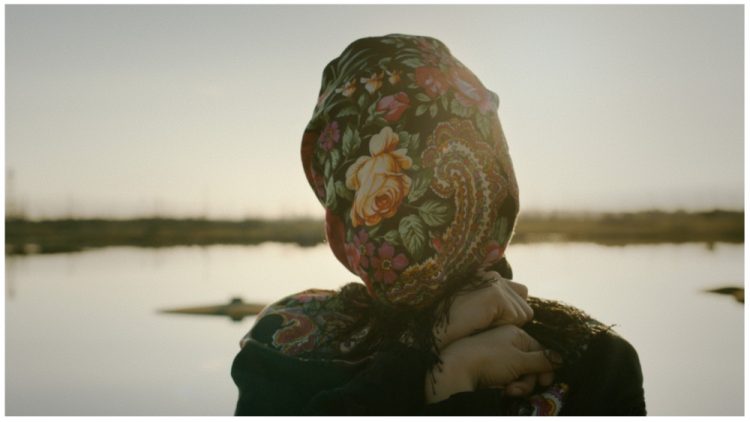Azeri filmmaker Hilal Baydarov’s work has won attention for its stunning imagery, confident framing and lyrical pacing, turning landscapes into hypnotic portraits of alien but familiar worlds.
His masterclass at the Ji.hlava International Documentary Film Festival – his first ever and one he had to be thoroughly talked into, he says – offered rare insights into his approaches and methods, built around a screening of his new film “Sermon to the Fish.”
Originally titled “Balıqlara xütbə,” the Azerbaijan-Mexico-Switzerland-Turkey film opens on a young woman in a wild landscape whose head is completely wrapped, almost as if for burial, in a red floral scarf. As she slowly lowers it, her story of a ghost village in which everyone has rotted away begins to unfold.
Her brother returns from a war saying “We won the war” but soon shows himself to be haunted by loss too in an account that dwells on long takes of stony reliefs, twisted trees and vast, polluted oil fields.
Having been labeled a master of slow cinema, Baydarov originally studied information technology, then became obsessed with film, he says, watching hundreds of art films and learned directing under Béla Tarr in Sarajevo. “I learned there was another world,” he says of the time, an insight that soon led to making four fiction films and five docs, with “Birthday” and “One Day in Selimpasha” screened at Ji.hlava in 2018.
His films are filled with what has been called “indistinct imagery” that blends with an “enigmatic, slightly mournful cast” and one critic called his latest work “a heavily atmospheric film made up of slow-moving, bleak scenes complemented by ambient, unsettling music as it attempts to answer the question of whether surviving is the same as living.”
Although his work has won praise and honors for years, with 2020 drama “In Between Dying” nominated for a Golden Lion at the Venice film fest, Baydarov says “I did not even know I was making a film” when he began shooting his original scripts.
Writing, filming, directing and editing himself, Baydarov says whatever script he starts with is generally forgotten once he begins shooting, preferring to follow the light and forms he discovers on location and encouraging his actors to explore and improvise.
“We are here for the beauty,” he says of his filming days, allowing no phones or social media on set. “We are searching for the beauty.”
“I discover my films by editing,” Baydarov says, adding that the rich soundscape of birds, wind, insects and strange unidentified tones is something he creates in post production. For “Sermon to the Fish,” typically, he ran through hundreds of bird sounds before choosing the ones that felt right, he says.
He often cites a lesson from his mentor, the grand Hungarian surrealist, Tarr: “Film like a dream, film like a music.”
But Baydarov also believes that cinema is in its early days as an art and filmmakers are only now learning what forms stories and image can take – and in particular how to work with time. If the base unit of music is the note and the building block of literature is the word, then in cinema it is time, he says.
This realization drives much of Baydarov’s work, he says, rather than any interest in finding or telling a logical story. What will stay with viewers far longer than scripted lines or an entertaining story, he says is something deeper: “Feeling.”
The young man’s return to the abandoned village in “Sermon to the Fish” and the hollow, pointless victory of the war fit in with the mood and milieu Baydarov is most comfortable with, exploring Azeri landscapes transformed into dark wonder worlds, often accented by the music of composer colleague Kanan Rustamli and, in this case, sound designer Christian Giraud.
“I don’t like to watch my films,” Baydarov confesses, and certainly is uncomfortable discussing them. He once admitted making up stories about his characters when asked about them by journalists. In reality, he says, he knows nothing about them.
Instead, he says, it’s about the search for the arresting moment, and always a surprise discovery. “A good film takes you to a place you have never been – but in a moment you feel it is yours.”
“You can never imagine what a single image will do for you,” he adds.
Source by variety.com


